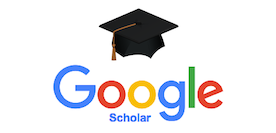USER RESEARCH ON HOUSEHOLD FOOD WASTE AMONG URBAN RESIDENTS IN JAKARTA: UNDERSTANDING BEHAVIORS FOR UI UX DESIGN
Keywords:
user research, food consumption management, motivation, ability, opportunityAbstract
Indonesia is the second-largest producer of food waste globally, making it a significant issue that demands urgent attention. To address this problem, various technological tools, such as mobile apps, can help users track and manage their food consumption. Unfortunately, most existing apps are designed for Western contexts and are not well-suited to Indonesian households. Developing an effective app requires comprehensive user research. This study leverages the Food Consumption Management model and the Motivation, Ability, and Opportunity framework to identify key behaviors contributing to food waste at the household level. Given the exploratory nature of the problem, a mixed-methods approach was used, combining surveys and interviews from diverse household settings. The study identified five key challenges: impulsive shopping, knowledge gaps in food management, time constraints, family dynamics, and the motivation to save money. Based on these findings, the proposed app features include real-time notifications, AI-assited recipe suggestions, quick meal planning modes, collaborative tools for family use, and progress-tracking dashboards. Gamification is also suggested to enhance user engagement and promote sustainable behaviors. This study provides preliminary research on user behavior for UI UX App Design, so the app can offer features that effectively promote sustainable food habits in Indonesian households.
References
Esben Hegnsholt, Shalini Unnikrishnan, Matias Pollmann-Larsen, Bjorg Askelsdottir, and M. G. (2018). Tackling the 1.6-Billion-Ton Food Loss and Waste Crisis. Boston Consulting Group. https://www.bcg.com/publications/2018/tackling-1.6-billion-ton-food-loss-and-waste-crisis
Fronemann, N., & Peissner, M. (2014). User experience concept exploration: user needs as a source for innovation. Nordic Conference on Human-Computer Interaction: Fun, Fast, Foundational, 727–736. https://doi.org/10.1145/2639189.2641203
Gumulya, D. (2023). Exploring User Experience Factors through the Lens of Design for Happiness in Mobile Application Design. 7th International Conference on New Media Studies (CONMEDIA). https://doi.org/10.1109/CONMEDIA60526.2023.10428664
Hassan, M. (2024). Exploratory Research – Types, Methods and Examples. https://researchmethod.net/exploratory-research/
Interaction Design Foundation. (2024). What is User Research? https://www.interaction-design.org/literature/topics/user-research
Jiequan Hong, Anicia Jaegler, O. G. (2024). Mobile applications to reduce food waste in supply chains: a systematic literature review. British Food Journal. https://doi.org/10.1108/BFJ-09-2022-0742
Moule, J. (2012). UX Design Defined – Ux Design.
Novitri, S. A. (2021). Indonesia in a State of Food Waste and Food Loss Emergency. Greenation. https://greeneration.org/en/publication/green-info/indonesia-in-a-state-of-food-waste-and-food-loss-emergency/
Radenkovic, M., & Laska, M. (2020). Human Centered Approach for Reducing Household Food Waste by Tracking Fridge Inventory and the Use of Mobile Application. https://mau.diva-portal.org/smash/get/diva2:1480251/FULLTEXT01.pdf
Roka, K. (2022). Environmental and Social Impacts of Food Waste. Responsible Consumption and Production. https://doi.org/10.1007/978-3-319-95726-5_17
Siregar, F., & Tjahjono, J. (2020). Elevating Trash Talk: Addressing Jakarta’s Organic Waste Problem. Kennedy School Review.
Soufan, A. (2023). Towards Understanding and Supporting Exploratory Searches. Conference on Human Information Interaction and Retrieval, 490–494. https://doi.org/10.1145/3576840.3578304
Tamasiga, H. O. P., Nwauzoma, U. M., Miri, T., Juliet, U. C., Nwaiwu, O., & Akinsemolu, Adenike A.Akinsemolu, A. A. (2023). Using Artificial Intelligence to Tackle Food Waste and Enhance the Circular Economy: Maximising Resource Efficiency and Minimising Environmental Impact: A Review. Sustainability. https://doi.org/10.3390/su151310482
Tobing, A. G. L. (2024). Hotels, Restaurants and Cafes in Jakarta Must Reduce and Process Food Waste. Berita Jakarta. https://www.beritajakarta.id/en/read/57139/hotels-restaurants-and-cafes-in-jakarta-must-reduce-and-process-food-waste
van Geffen, L., van Herpen, E., & van Trijp, H. (2016). Causes & Determinants of Consumers Food Waste. Eurefresh.Org, 20, 26. https://eu-refresh.org/causes-determinants-consumers-food-waste
Downloads
Published
How to Cite
Issue
Section
License
Copyright (c) 2024 Devanny Gumulya, Catharina Carissa Alfiora

This work is licensed under a Creative Commons Attribution-NonCommercial-ShareAlike 4.0 International License.





